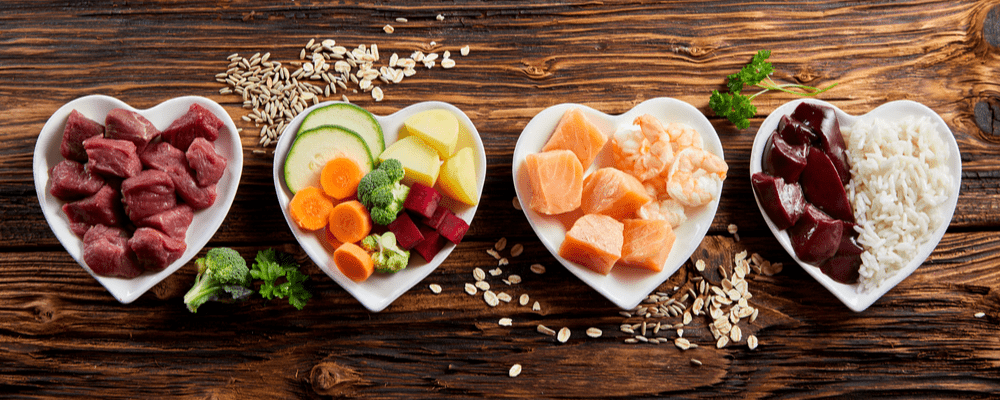Your pet’s skin and hair aren’t just nice to pet — they play an important role in keeping them healthy and comfortable. They prevent water and heat from leaving your pet’s body, plus they help keep viruses and bacteria out. One of the best ways to make sure your pet’s skin and coat are in the best possible condition is by paying close attention to what you put in their food bowl. A high quality diet can help your pet have a healthier skin and coat.
Nutrients like protein, fat, vitamins and minerals can all impact your pet’s skin and coat health. Your pet’s coat is made up almost entirely of protein. If their diet doesn’t contain enough quality protein, your pet’s hair might fall out or become dry, weak and brittle.
Likewise, their skin is made up of tightly packed flat cells with tough membranes made of proteins and fats. Without proper amounts of these nutrients, the cell membranes can weaken, allowing water to escape and bacteria and viruses to enter more easily.
Make sure your pet is getting the following nutrients to help keep their coat and skin healthy.
Nutrients Your Pet Needs for Healthy Skin and Hair
Essential Amino Acids
Proteins are found in both animal-and plant-based ingredients. However, animal-based proteins contain all the essential amino acids pet’s need, while plant-based proteins might not contain enough of some essential amino acids, and require supplementation.
Fatty Acids
Fats also are found in both animal-and plant-based ingredients and are incorporated into skin cells as fatty acids. In particular, linoleic acid plays an important role in a pet’s skin and coat health. Without enough linoleic acid, pets might have a dull and dry coat or experience hair loss, greasy skin or skin inflammation.
Linoleic acid is found in chicken fat and vegetable oils such as corn and soybean oils. Research has also found that the fatty acids in vitamin-rich fish oils help promote excellent skin and coat health.
Vitamins and Minerals
Your pet needs vitamins and minerals for healthy skin and a healthy coat, too. The best way to provide these nutrients is by feeding a complete and balanced diet full of essential vitamins and minerals, rather than giving them supplements.
Here’s how vitamins and minerals help keep your pet’s skin and coat healthy:
| Vitamin or Mineral | Importance to Skin and Coat Health |
| Vitamin A | Aids in skin growth and repair |
| Vitamin E | Protects skin cells from oxidant damage |
| Vitamin C | Helps heal wounds |
| Biotin | Aids in the utilization of protein |
| Riboflavin (B2) | Helps your pet metabolize fat and protein |
| Zinc | Helps your pet metabolize fat and protein |
| Copper | Involved in tissue, pigment and protein synthesis |
What Causes Changes in a Pet’s Coat Condition?
Changes in diet can lead to changes in your pet’s skin and coat condition, but other common causes are season and life stage. As cold weather approaches, some dogs grow a thick coat to help keep heat in and cold air out. As the weather warms up, they shed their thick, heavy coat. This is less pronounced in Florida where we don’t have dramatic seasonal changes.
Most puppies are born with soft, fuzzy hair, but as they age, they grow a coarser coat. Pregnant or nursing pets also might experience a change in coat condition or hair loss. And, just like humans, a pet’s hair might thin out and become coarser and white as they reach their mature years.
If you see any changes in your pet’s coat that concern you or don’t seem normal, give us a call and we’ll have one of our vets take a look.
